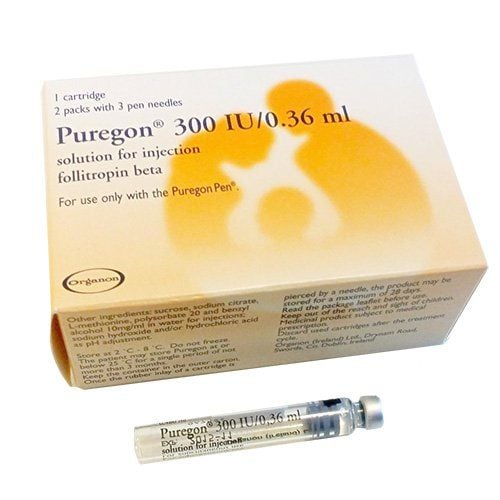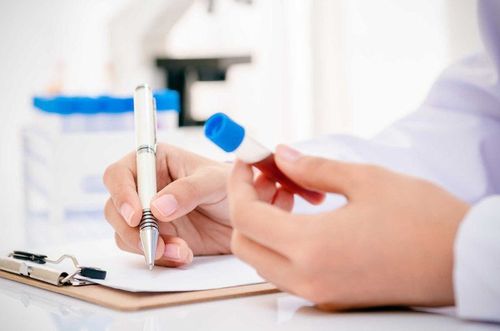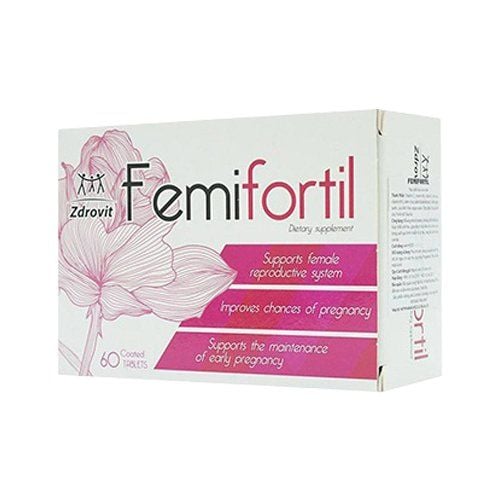This is an automatically translated article.
IVF is one of the effective infertility treatment methods today. However, for the IVF process to be effective, the implementation of endocrine tests is indispensable, including the E2 hormone test.
1. What is IVF?
IVF is one of the methods of assisted reproductive treatment for infertile couples. The method is done by having sperm and egg fuse together outside the body, usually in a test tube, and will become an embryo.
Once the embryo is formed, it will be placed in the woman's uterus. The embryo continues to implant and develop into a fetus just like other natural conceptions.
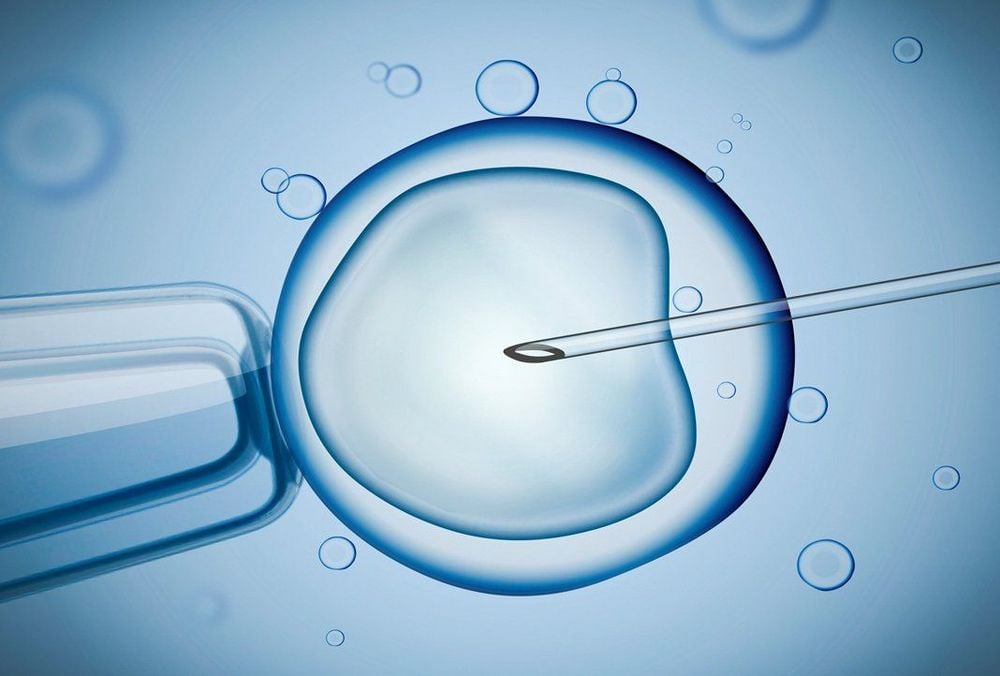
Thụ tinh ống nghiệm là phương pháp hỗ trợ sinh sản phổ biến
2. Procedure for IVF
The procedure for IVF is done as follows:
General examination to assess the reproductive health of the couple. Based on the initial examination results to decide whether to give IVF indications or not. Women on the 2nd day of the menstrual cycle will undergo ultrasound and endocrine tests, and start taking medication to stimulate the ovaries. The doctor gives the woman an injection of hormone that stimulates ovulation for 9-12 days. 36-40 hours before oocyte retrieval, the doctor will inject drugs to induce ovulation. Conduct oocyte aspiration, ICSI and embryo culture. When the embryo is formed and transferred back to the woman's uterus on day 3 - 5. After 14 days of embryo transfer, pregnancy test and ultrasound will be performed when 28 days are full. Recommended video:
Things to know about IVF
3. E2 hormone test in IVF
As can be seen, endocrine testing is one of the important factors contributing to the success of in vitro fertilization. With endocrine tests, your doctor can assess your reproductive health and prescribe appropriate treatment.
2.1 Endocrine test E2 E2 or Estradiol is a hormone secreted by the granulosa cells in the ovaries. This hormone supports the development of the egg as well as the lining of the uterus. Along with progesterone, estradiol helps form menstruation. Accordingly, the normal range of E2 hormone is from 46 to 607 pmol/L.
E2 hormone test results can partly reflect the functioning of the ovaries. People with low E2 at the beginning of the period often have atrophy or ovarian failure. Not only that, too low E2 levels also increase the risk of atrophy of the uterine lining that cannot transfer embryos, making it difficult to get pregnant.
Besides E2 index, there are other factors that determine the success of IVF, including AMH, FSH, LH,...
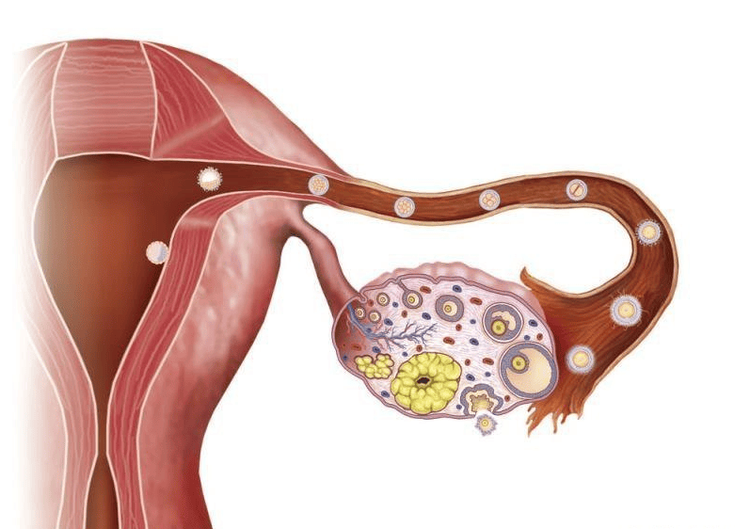
Xét nghiệm nội tiết E2 có thể phản ánh tình trạng hoạt động của buồng trứng
2.2 FSH test FSH is a follicle-stimulating hormone produced by the pituitary gland in the brain. During the follicular phase of the menstrual cycle, FSH stimulates the development and maturation of eggs in the ovaries. A normal FSH reading is between 3.03 and 8.08 mlU/mL.
FSH test is necessary in IVF because the stimulant drug injected into the woman's body is actually the hormone FSH.
Based on the results of the FSH test, it is possible to know if a person is suffering from ovarian failure. For people with too low FSH levels, ultrasound of the ovaries is almost invisible because the ovaries have atrophied.
2.3 LH test LH is also a hormone produced by the pituitary gland in the brain. High LH levels in the middle of the cycle lead to ovulation. LH also stimulates the secretion of steroids (mainly estradiol) in the ovaries. A normal LH reading is between 2.4 and 12.6 mU/mL.
High levels of the hormone LH are a sign that ovulation will take place in the next few days (usually only 1-2 days).
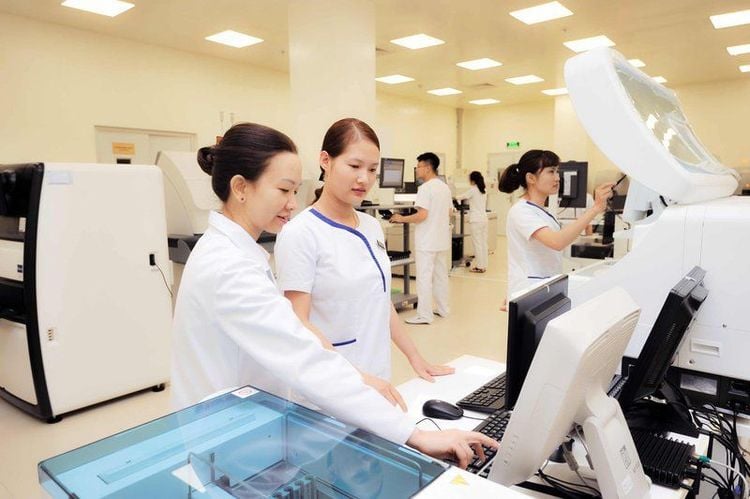
Labo xét nghiệm tại Vinmec thực hiện các xét nghiệm cho kết quả chính xác
2.4 AMH Test Currently, the AMH test is a highly accurate endocrine test and can substitute for LH, FSH or estradiol in the assessment of ovarian reserve. The AMH test can be done at any time but is not required on day 2 or 3 of your period. A normal AMH reading is in the range of 2.0 to 6.8 ng/ml.
The concentration of AMH in the blood indicates ovarian reserve, the higher the fertility, the better the ovarian reserve. If a woman has a very low AMH, then treatment to increase AMH is necessary to improve oocyte quality first before IVF can be considered.
Besides hormonal testing, before IVF, the patient may also be ordered to do some other tests such as testing for sexually transmitted infections or gynecological ultrasound, ...
With the advancement of advanced medicine, the endocrine test is considered to be the most accurate method of assessing the functioning and storage capacity of the ovaries. Through these tests, the treatment of infertility and infertility by IVF can be more effective.

Trung tâm hỗ trợ Sinh sản tại Bệnh viện Đa khoa Quốc tế Vinmec
For examination and advice, couples can go directly to the Fertility Support Center at Vinmec International General Hospital. Vinmec Reproductive Support Center is the leading modern center in Vietnam, built and applied a treatment process that coordinates comprehensive examination, combining both male and female obstetrics and gynecology to offer the optimal plan for each patient. each patient case.
Vinmec is a prestigious address for health examination and fertility assessment, a center that gathers a team of leading experts in the field of obstetrics and gynecology in the country and internationally, trained at leading centers around the world. in the world such as in the US, Singapore, Japan, Australia and famous fertility centers in the world.
For consultation and treatment at Vinmec, please come directly to Vinmec health system or register online HERE.
Recommended video:
How long after embryo transfer does the embryo implant?
MORE:
Process and factors affecting the success rate of in vitro fertilization Things to know about IVF Screening for endocrine diseases in infertile women




